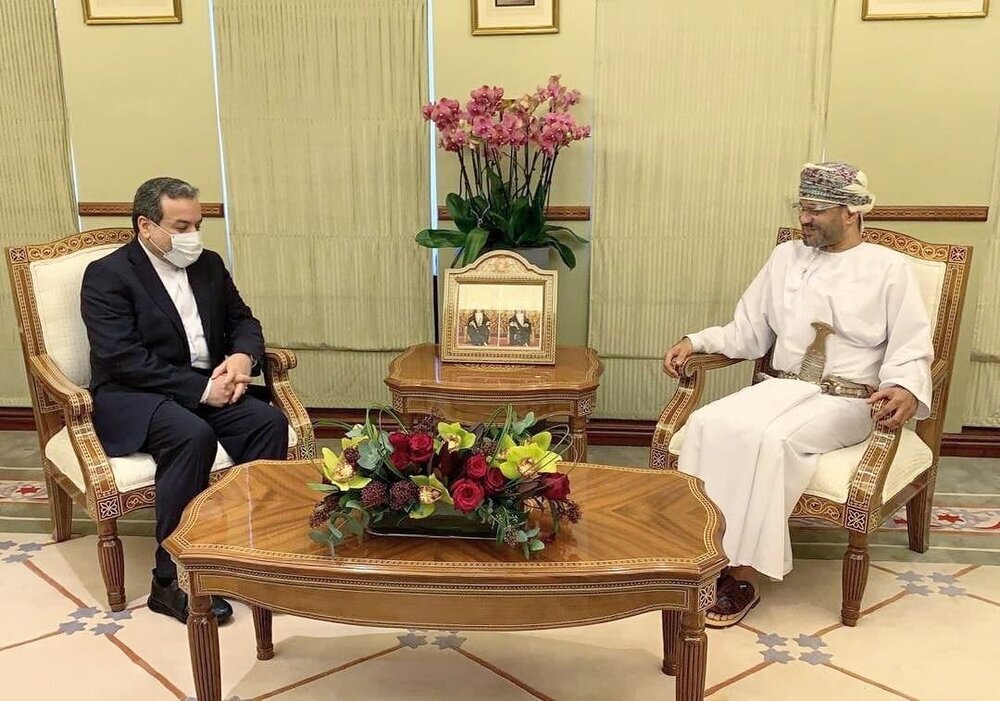Araghchi meets Oman FM, lauds Muscat’s balanced approach

TEHRAN – Iranian Deputy Foreign Minister for Political Affair Abbas Araghchi held talks on Monday morning with Oman’s Foreign Minister Sayyed Badr Al Busaidi in Muscat and praised Oman’s balanced approach toward regional and international issues.
Araghchi visited Muscat to participate in the seventh session of Iran-Oman strategic consultation committee, the Iranian embassy in Muscat said in a press release.
Pointing to the importance of continued consultations between the officials of the two countries and the high status of Oman in Iran’s foreign policy, Araghchi said the holding the committee meeting at the current time is of high importance.
Oman’s foreign minister also said the two countries have ample potential to develop ties, especially in areas of economy and trade.
Al Busaidi also expressed hope that in view of the new international conditions a ground will be created for better understanding and dialogue between regional countries over pressing issues in the region.
Oman and Iran share close diplomatic, economic, and military ties. The sultanate of Oman acted as an intermediary between Tehran and Washington during the Barack Obama administration.
Now that Obama’s vice president Joe Biden is to take the helm at the White House it is assumed that the role of Oman comes to light again.
As Oman and Iran share sovereignty of the Strait of Hormuz, Muscat has been pragmatic about cooperating closely with Iran on a host of regional issues, according to the Atlantic Council.
Moreover, a key pillar of Oman’s foreign policy has been to balance its Arab neighbors and Western allies on one side and Iran on the other.
While some officials in some of the Persian Gulf Cooperation Council states propagate Iranophobia, the concern in Muscat pertains to Saudi Arabia’s quest for hegemony in the greater Arabian Peninsula. Thus, a growing partnership with Iran has enabled Oman to counter-balance the Saudi kingdom, the PGCC’s powerhouse, which has not always respected the sovereignty of the Council’s smaller states.
In his first remarks since ascending to power this month, the Sultanate’s new head-of-state affirmed that post-Qaboos Oman would continue adhering to the foreign policy principles that Muscat has embraced since 1970. “We will follow the same line as the late sultan, and the principles that he asserted for the foreign policy of our country, of peaceful coexistence among nations and people, and good neighborly behavior of non-interference in the affairs of others.” Like his predecessor, Sultan Haitham is committed to promoting the peaceful coexistence and economic integration of all Persian Gulf states, including Iran.
Since Sultan Haitham ascended to power in Oman, the Iranian leadership has taken significant steps to demonstrate Tehran’s commitment to supporting him and preserving the Islamic Republic’s close relationship with Muscat. Two days after Oman’s new leader took the throne, Iranian President Hassan Rouhani sent him a congratulatory message which stressed the “mutual trust” between Muscat and Tehran. Rouhani said, “I hope that the bilateral relations during the era of your leadership would further grow in all fields with wisdom and discernment.”
PA/PA
Leave a Comment